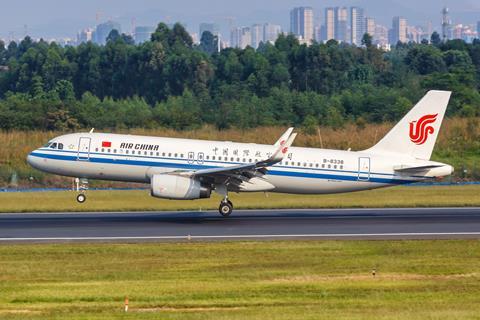Air China believes domestic airline competition “will be mitigated” in the near term, following a bruising year where travel demand collapsed under the pressures of China’s now-scrapped ‘zero-Covid’ policies.
The Beijing-based carrier also believes that 2023 will be “a turning point for recovery” for the country’s battered aviation sector, with demand on the rise.

In comments made alongside its annual report, Air China notes that Chinese airlines are “proactively” adjusting their fleet sizes, with the overall fleet growth slower in 2022 than in 2021.
“The slowdown in growth of the industry’s fleet size … is conducive to alleviating the operating pressure arising from the overall excess capacity in the short term and the competition in the industry during the recovery and growth period,” the carrier states.
Air China, like its state-owned compatriots China Eastern Airlines and China Southern Airlines, plunged to record full-year losses, as they bore the brunt of the country’s zero-infection restrictions.
The Star Alliance carrier was the worst-performing among the ‘Big Three’, posting an operating loss of CNY35.4 billion ($5.1 billion) for the year to 31 December 2022. This compares to the CNY16.9 billion loss it reported in 2021.
Revenue for the year plunged 28% to CNY56.3 billion, with passenger revenue seeing the sharpest decline year on year. The Star Alliance carrier saw a 42% decline in full-year traffic, with passenger numbers falling about 44%.
Still, Air China believes “market potential will remain immense” this year.
“In 2023, China’s civil aviation industry will embrace a turning point for recovery. Business travel and holiday tours will accordingly continue to be growth drivers of the aviation industry, and air travel demand will become increasingly diverse, customised and popular,” it adds.


























